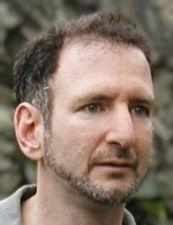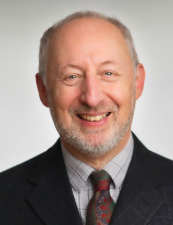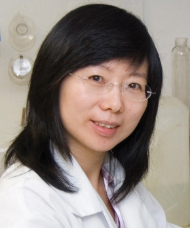The External Oversight Committee (EOC) of the Blueprint Neurotherapeutics Network for Biologics (BPN-Biologics) is an external advisory group of experts directed to provide independent advice to the NIH program staff and its current projects. The Committee currently consists of six members with an executive level of expertise in therapeutics discovery and pre-clinical development as well as comprehensive experience in effective portfolio analysis, planning and control, and decision-making process in both academia and industry.
As individuals, EOC members deliver their perspectives independently on the oversight, strategy, and implementation of the BPN-Biologics program. The Committee members provide independent feedback on BPN-Biologics projects’ progression including developing and monitoring milestones-driven plans for individual teams.
As a link to the neurotherapeutic biologics discovery/development research community, the EOC will help the BPN-Biologics program adjust to changing landscapes and continue to provide a unique community scientific resource. Membership on this committee may be supplemented with ad hoc participation of individuals with expertise appropriate for specific programmatic matters within the BPN-Biologics program and the Division of Translational Research.
Eva Feldman, MD, Ph.D.

Dr. Feldman received her MD and PhD degrees from the University of Michigan, completed a neurology residency at the Johns Hopkins Hospital, and returned to University of Michigan for a Neuromuscular fellowship. In addition to her active clinical practice in neurology and position as the Russell N. DeJong Professor of Neurology at the University of Michigan Medical School, Dr. Feldman directed the A. Alfred Taubman Medical Research Institute until 2017, and is currently Director of the University of Michigan ALS Center of Excellence. She also runs her own 30-scientist laboratory, the NeuroNetwork for Emerging Therapies, and is the principal investigator of two first-ever FDA approved human clinical trials of intraspinal stem cell implantation therapy for ALS. Dr. Feldman has published more than 460 original peer-reviewed articles, 70 book chapters, and four books and has had continuous funding from the National Institutes of Health for more than 30 years.
She is Past President of the Peripheral Nerve Society (PNS) and served as President of the American Neurological Association (ANA) from 2011 to 2013, the third woman to hold this position in 130 years. Among Dr. Feldman’s greatest accomplishments is her training of both scientists and neurologists. Nine scientists have received their Ph.D. degrees under her supervision, and she has trained over 100 postdoctoral fellows and neurologists to specialize in understanding and treating neurological diseases, with an emphasis on ALS and neuropathy.
Dr. Feldman’s numerous honors include both the Early and Distinguished Career Development Awards from University of Michigan and being an elected member of the Association of American Physicians and National Academy of Medicine. In addition, she received the 2016 Castle Connolly National Clinician of the Year award, the 2016 Society for Neuroscience Bernice Grafstein Award for Outstanding Accomplishments in Mentoring, and the 2017 Endocrine Society Gerald D. Aurbach Award for Outstanding Translational Research. She was named a 2018 Honorary Fellow of the ANA, and recently honored with the 2019 PNS Alan J. Gebhart Prize for Excellence in Peripheral Nerve Research. In 2020, Dr. Feldman assumed the Chair of the Neurology and Psychiatry Section for the National Academy of Medicine.
Darryle Schoepp, Ph.D.

Dr. Schoepp has over thirty years experience in the discovery and development of innovative Neuroscience therapeutics in pharmaceutical industry. This includes 20 years at Eli Lilly as a scientist and leader of Neuroscience research department, and 11 years at Merck as the Neuroscience research therapeutic area leader.
As a scientist, he has over 200 publications (>19,000 citations of this work) and is an inventor of 15 US patents. He is recognized for having made major contributions in the investigation of the excitatory amino acid neurotransmitter glutamate in disease pathophysiology, pharmacology and therapeutics. His bench and leadership roles have led to the discovery and introduction into patients of over 20 novel first in class agents for psychiatric and neurological diseases. These include the first AMPA/kainate and metabotropic receptor negative and positive modulators (e.g. Tezampanel, Talampanel, LY354740, LY341595, Eglumetad and Pomoglumetad) investigated for migraine, pain, cognition, anxiety disorders and schizophrenia. While at Lilly, he was a co-discoverer of the compound LY246736 (Alipimovan/Entereg) a first in class peripherally restricted opioid antagonist for post-operative ileus.
At Merck as head of Neuroscience research, his team have built a pipeline of innovative first class agents for Alzheimer’s disease, Parkinson’s disease, pain/migraine, and schizophrenia. Merck Neuroscience successfully developed and launched the first in class orexin receptor antagonist Suvorexant (Belsomra) for insomnia and created the novel first in class oral CGRP antagonists Ubrogepant and Atogepant currently in registration trials for migraine treatment and prevention (by Allergan). His group made important contributions to the pioneering trials of the BACE inhibitor Verubecestat in prevention trials for Alzheimer’s disease.
Thomas Fuerst, Ph.D

Dr. Fuerst is a professor in the Department of Cell Biology and Molecular Genetics, University of Maryland (UMD). He also served as director of the Institute for Bioscience and Biotechnology Research (IBBR), UMD, in which the Institute’s mission is focused on biomolecular structure-function relationships and measurement sciences with an emphasis on structure-based vaccine design, next generation protein therapeutics, and macromolecular delivery systems. He has a distinguished track record as a senior biotechnology executive and former government official with more than three decades of experience in the research, development, and manufacturing of biological products. Dr. Fuerst has extensive scientific expertise and knowledge of state-of-the-art technologies and practices used in the discovery and development of vaccines, therapeutics, and related technologies.
Dr. Fuerst also served as a senior fellow at the National Institutes of Health, National Institute of Allergy and Infectious Diseases. He holds a BA in biochemistry from the University of California at Berkeley, a PhD in molecular genetics from Cornell University, and an MBA in science, technology, and innovation from the George Washington University. He is the recipient of several Distinguished Service Awards for leadership from HHS, served on the Advisory Council for the College of Life Sciences at Cornell University, and participates on several advisory boards in the biotechnology industry.
David Presky, Ph.D.

Dr. Presky has worked for over 30 years in the pharmaceutical industry with leading positions in drug discovery research at Hoffmann-La Roche, Abbott Bioresearch Center and Boehringer Ingelheim. He attended the University of Rochester and received his PhD in Pharmacology at Harvard University followed by post-doctoral studies at the Lab of Immunology at the NIH. Dr. Presky’s expertise covers developing high throughput screening assays, cell-based functional assays, in vivo models of autoimmune disease, new target identification and project leadership. He has supervised teams of discovery scientists for both small molecule and biologic-based drug discovery, led international multi-disciplinary biologic-based drug discovery teams, participated in preclinical development teams and was a member of international strategic teams that helped set the direction of company-wide biologic-based drug discovery research. Dr.Presky has played major roles in the discovery of marketed therapeutics including SKYRIZI® for psoriasis, psoriatic arthritis and Crohn's disease and SPEVIGO® for generalized pustular psoriasis, as well as in the identification of multiple therapeutic agents that are currently in clinical or pre-clinical development for autoimmune and immuno-oncology indications. He currently consults for biotech companies in the area of biologic-based drug discovery and has been involved in the crafting of scientific arguments relating to patent litigation.
Hayley McLoughlin, Ph.D.

Dr. Hayley McLoughlin is an Assistant Professor in the University of Michigan Neurology Department, with a joint appointment in the Department of Human Genetics. She earned her Neuroscience doctoral degree in 2013 from the University of Iowa in Dr. Beverly Davidson's laboratory and completed a postdoctoral research fellowship under the guidance of Dr. Henry (Hank) Paulson at the University of Michigan. In her postdoc, she assessed the efficacy of antisense oligonucleotide therapy in mouse models of Spinocerebellar Ataxia type 3/Machado-Joseph disease (SCA3/MJD). In 2016, she was appointed to research faculty at the University of Michigan where her lab focuses on establishing pathogenic mechanisms and therapeutic interventions for neurodegenerative diseases with particular emphasis toward the polyglutamine disease, SCA3. SCA3 is a progressive, dominantly inherited neurodegenerative disease for which there currently is no treatment. Dr. McLoughlin has recently been appointed to the tenure-track at the University of Michigan, where she continues to lead SCA3 preclinical efforts toward antisense oligonucleotide (ASO) gene silencing and viral-mediated RNAi in collaboration with industry partners. In hopes of identifying additional routes for therapeutic intervention, discovery of novel disease biomarkers, and to provide broader insight into the polyglutamine diseases beyond SCA3, the McLoughlin lab also interrogates disease mechanisms using a variety of SCA3 cellular and animal disease models as well as human tissue and biofluid samples.
Stephen M. Kaminsky, Ph.D.

Dr. Stephen M Kaminsky is a Professor of Research in the Department of Genetic Medicine and the Associate Director of the Belfer Gene Therapy Core Facility, both at Weill Cornell Medical College. Dr. Kaminsky received a BS in Applied and Engineering Physics at Cornell University and MPhil and PhD degrees in Molecular Biophysics and Biochemistry from Yale University. He did his postdoctoral training with an NIH research fellowship at Albert Einstein College of Medicine in the Department of Molecular Pharmacology. Following his postdoctoral training, Dr. Kaminsky was Director of Peptide and Analytical Chemistry at United Biomedical, Inc. where he was a member of the design team for several prophylactic and therapeutic vaccines each of which went to clinical trial. He was later the Director of Protein and Analytical Chemistry at the International AIDS Vaccine Initiative and supervised a team of senior scientists for immunogen design and in parallel had a faculty appointment at SUNY Downstate.
At Weill Cornell, Dr. Kaminsky designed the Belfer Gene Therapy Core Facility, created the GMP production laboratory, established the documentation systems, underlying processes, and controls, and is a key contributor to translational research programs for gene therapies to treat, among many others, heart disease, lysosomal storage defects, blindness and Alzheimer’s as well as vaccines to treat addiction. Under his supervision the GMP facility produced clinical gene therapy products for other academic institutions, biotech companies and the NIH for trials in the US and Europe. His facility was a national core under the NHLBI’s Programs of Excellence in Gene Therapy.
Dr. Kaminsky has presented at numerous national meetings and participated on panel discussions for the NIH and FDA as well as education and research sessions at the American Society of Gene and Cell Therapy. He is a project team lead for the National Institute for Innovation in Manufacturing Biopharmaceuticals. His publications span a wide array discipline in science journals from protein science, pediatric neurosurgery, translational medicine, gene therapy and virology and he has authored 7 book chapters. Dr. Kaminsky has drafted more than 20 FDA submissions and participated in numerous clinical trials.
Yanhong Shi, Ph.D.

Dr. Shi is Professor and Chair Department of Neurodegenerative Diseases, and Director of the Division of Stem Cell Biology Research at Beckman Research Institute of City of Hope National Medical Center. Dr. Shi earned her Ph.D. degree from Northwestern University and underwent postdoctoral training at Salk Institute. After her postdoctoral training, Dr. Shi joined City of Hope as a faculty member.
The Shi lab at Beckman Research Institute of City of Hope is focused on human induced pluripotent stem cell (iPSC)-based disease modeling and cell therapy development for debilitating diseases. Dr. Shi has developed cGMP-compatible manufacturing processes for human iPSC derivation, differentiation, and genetic engineering. The Shi lab has demonstrated robust disease-modifying effects of human iPSC-derived neural progenitor cells or oligodendroglial progenitor cells as autologous or off-the-shelf cell therapy for Canavan disease in preclinical studies and is developing human iPSC-based cell therapies for other diseases.
Dr. Shi has received the James S. McDonnell Foundation Pilot Award, the Sidney Kimmel Scholar Award, the Margaret E. Early Medical Research Award, the Whitehall Foundation Research Award, the Charles E. Culpeper Biomedical Pilot Initiative Award, the Stop Cancer Career Development Award, and the City of Hope Values-in-Action Awards for “Intellectual Curiosity” and “Compassion”. Dr. Shi is the American Institute for Medical and Biological Engineering (AIMBE) Fellow. She is also the beneficiary of the Herbert Horvitz Endowed Professorship in Neuroscience, the Christopher Family Endowed Innovation Fund for Alzheimer’s Disease Research, and the Briskin Research Innovation Award.
